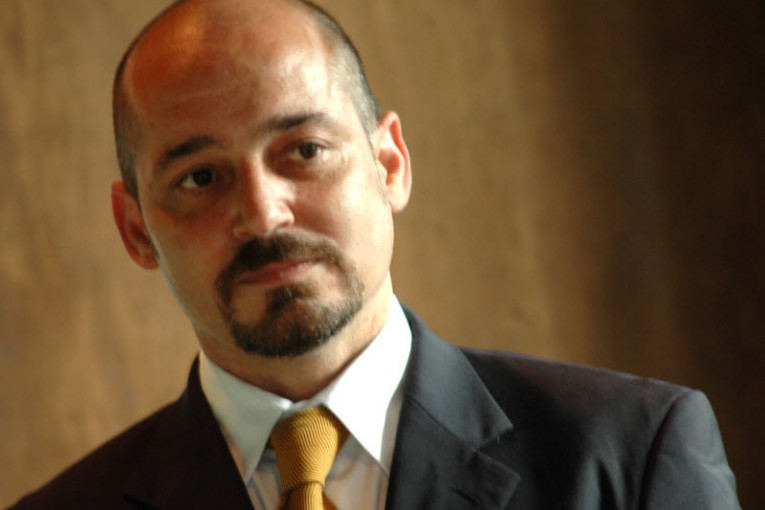

How can Davis use its land use entitlement power to grow our tax base? The Enterprise has published dozens of articles on this subject for many years now. What’s driving the push—and the core argument as to why we want to change the slow growth approach in Davis has been the mantra–“We need new tax revenues to maintain what we have!” With that as background, a diverse coalition of interests, from environmental groups to the business community, is bringing a nationally known planner, Joe Minicozzi, to share his insights that explain the connection between land use/zoning decisions and building a stronger tax base.
Minicozzi is a sought-after keynote speaker, known for his dynamic “TED-Talk”-like presentations, which integrate maps and spreadsheets to dramatically show the impact of zoning decisions, often revealing counter-intuitive conclusions. He will be giving a presentation Tuesday, September 29, at 7 pm at the Veterans Memorial Theater. This presentation will include a panel of local leaders reacting to his talk and commenting on its applicability to Davis.
The unusually broad coalition sponsoring Minicozzi was led by the Yolo County Board of Realtors, which obtained a key National Association of Realtor Smart Growth grant with the guidance of Judy Corbett, founder and director emeritus of the Local Government Commission. She is currently serving as their Innovation Advisor. The City of Davis is also a co-sponsor, along with the Sierra Club, Cool Davis and the Downtown Davis Business Association. These groups are joined by five UC Davis departments representing studies as diverse as transportation, business innovation, environment, social equity and landscape design.
Minicozzi pioneered the use of what is known as “Geo Spatial” analysis, i.e. linking tax revenue to land use on a parcel-by-parcel basis. He views cities as municipal corporations that turn land into income via taxes. He reasons that, just like a for-profit corporation, cities need to assure that costs don’t exceed income.
Community members who want a preview of his presentation prior to September 29 can visit his business web page, Urban Three, to find links to a 3-minute video as well a full presentation to a national conference. Watching this presentation is what catalyzed the broad coalition to come together to bring Minicozzi to Davis.
what is the purpose of this forum?
So please explain why you think this forum is anti-innovation parks, as you suggested in another thread? I was completely baffled how you drew that conclusion.
Minicozzi is a national evangelist for downtown densification. I’m not aware of anything in his shtick that is anti-innovation park.
On the other hand, some of the key organizers of the visit (e.g. Judy Corbett, Don Saylor, the Sierra Club, the DDBA, Cool Davis, etc.) are not particularly enthusiastic supporters of MRIC. From what I’ve seen, their positions range from tepid lip-service to an anti-MRIC op/ed (Corbett).
My cynical guess is that Minicozzi’s model – basically, using data-driven land use entitlement decisions to maximize tax yield to municipal corporations – may be co-opted by local political factions to push various agendas that are adverse to the City’s currently adopted innovation park strategy.
Is there a special City Council meeting tomorrow?
at 7:30 am
Be there or be square.
Beware false prophets . . . beware false profits!
Care to elaborate?
I attended the event last night and was very struck ( notice I did not say persuaded as their is much to think about here) by the visual representation of Mr. Minicozzi’s observations and interpretations of data. I am hoping for a presentation on the Vanguard and subsequent discussion of the ideas presented.
I would also note that as the name of the talk would suggest, it was all about growth, and all about money. One thing that Mr. Minicozzi alluded to, but did not pursue, is the all important step of considering what we want our community to look like in the future.
This would seem to me to be central as we are not all united in the unmitigated statement by the architect on the panel in his assertion “we all want to grow”. There are some of us who accept growth as inevitable given the driving factors in our region, but who want it to be as slow and well planned as possible rather than the current hodgepodge of acceptance of projects simply because we say repetitively “we need to grow” without due consideration of grow into what.